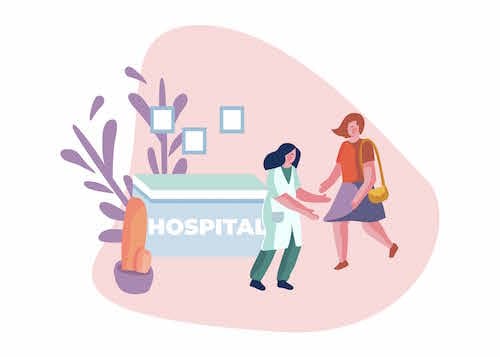February 28, 2020
By Jo Clark
 One of the most frustrating aspects of having a mental illness as chronic and severe as mine is explaining to people that I don’t “choose” to be unhappy. I’ve found it helpful to explain depression as a tunnel. For most people, sadness feels like being in a dark tunnel, but there is a light at the end of it. Depression is the absence of the light. It is the hopelessness of being lost in the dark with no way out. Every episode of my depression has been similar in that regard. The light goes out, and I lose my way.
One of the most frustrating aspects of having a mental illness as chronic and severe as mine is explaining to people that I don’t “choose” to be unhappy. I’ve found it helpful to explain depression as a tunnel. For most people, sadness feels like being in a dark tunnel, but there is a light at the end of it. Depression is the absence of the light. It is the hopelessness of being lost in the dark with no way out. Every episode of my depression has been similar in that regard. The light goes out, and I lose my way.
My first episode of depression came when I was about 14 years old and didn’t fully end for four years.
When it finally did end when I was 18, a freshman in college, my mother commented on how happy I seemed. I was happy. The light had returned. I could remember the depths of my sadness, but with the light to guide me, it seemed impossible to ever feel that way again. I made it four years in the light before slowly, without me noticing, it began to dim. It dimmed and dimmed until I lost track that it was fading.
My suicide attempt scared me, because I don’t remember what happened. It scared my parents and my grad school too. I was placed on medical leave and returned home. I was in the dark, but I remembered what the light felt like. I had the memory of it. So when the thoughts became too strong for me to handle on my own — I sought help.
A few years later, I finished school and started my first job. “Horrible” might be a compliment considering how much of drain it was to work there. I knew my light was dimming again. Then one morning, I woke up with the realization that if I tried to make it to work that day, I wouldn’t make it at all. I knew I had a choice. I could try to go, knowing I would not make it, or I could go in the opposite direction. I called my parents at 4 a.m. their time. They were both still asleep, but my mom answered and stayed on the phone with me as I drove to the nearest hospital with a psych unit. I didn’t hang up until I was in the ER entrance. I told the nurse on staff, “I’m having a mental health crisis.”
A year and a half later, I was working a new job and much happier. This time, I caught the warning signs early: frustration, irritability and decreased concentration. My counselor and I wanted to avoid a full-blown hospitalization, so I admitted to a partial-hospitalization program. At the end of two weeks, the light had faded completely, but I remembered that I had it in me once.
“Don’t tell me this will be the last time,” I told the doctor as I waited for a bed to open. “I’m tired of hearing it. The light fades, I go to the hospital. It’s my only option.”
In truth, I have two options, but one of them is unacceptable. So, I go to the hospital. At least there I am safe while I wait for the light to return. I cling to the memory of it, because the darkness feels eternal. Around me are doctors, nurses, social workers and mental health workers. They all have the light, and they are willing to hold my hand and lead me through the dark. I am not alone.
The light will return. It always does. Being in the darkness is difficult and painful and lonely. I know the light will fade again in the future, but that’s fine. So long as I can hold on to the lifeline of someone else’s light, and the memory of my own, I know I will be okay.
Jo Clark is a data scientist and roboticist living in California with her sister and two emotional support cats. She’s lived with depressive episodes since she was fourteen years old. Jo doesn’t shy away from sharing her story of surviving several suicide attempts and hospitalizations. She hopes that speaking openly about her experiences will help end stigma around mental health.
We’re always accepting submissions to the NAMI Blog! We feature the latest research, stories of recovery, ways to end stigma and strategies for living well with mental illness. Most importantly: We feature your voices.
LEARN MORENAMI HelpLine is available M-F, 10 a.m. – 10 p.m. ET. Call 800-950-6264,
text “NAMI” to 62640, or email. In a crisis, call or text 988 (24/7).